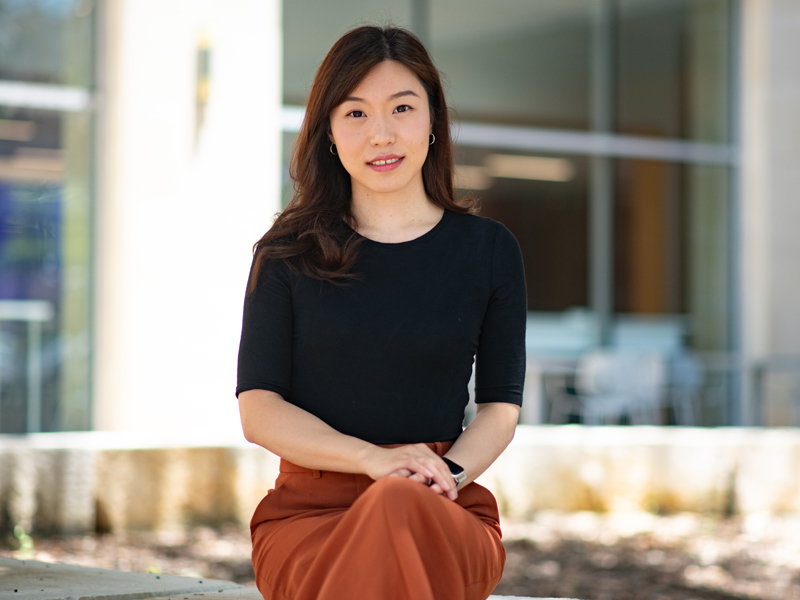The Oden Institute for Computational Engineering and Sciences is excited to welcome Hannah Lu as a new core faculty member for the academic year 2024-25. Lu will also be an assistant professor in the Department of Aerospace Engineering and Engineering Mechanics at the Cockrell School of Engineering, and comes to us from the Massachusetts Institute of Technology. She earned her Ph.D. in Energy Science and Engineering at Stanford Doerr School of Sustainability.
Tell us about your research and why it's meaningful.
My research interests lie in scientific computing, model reduction, uncertainty quantification, and machine learning in applications of environmental fluids. I am working on leveraging advances in data-driven tools to improve computation efficiency, quantify the uncertainty of models, and provide scientific information to inform decision-making on climate change.
One of my current major research projects is developing machine learning tools to improve geologic CO2 sequestration. This process, which captures and stores carbon dioxide in underground geologic formations, is an important strategy for reducing greenhouse gas emissions in the atmosphere and mitigating climate change. I am also interested in collaborating with faculty in the department to develop a subsurface digital twin model, which combines every aspect of my previous and current research.
Why did you choose to join ASE/EM?
After visiting The Unviersity of Texas at Austin and giving a seminar last fall, I realized it was a dream place for me to pursue interdisciplinary studies. There are many computational engineering pioneers at UT I've looked up to since graduate school. As a female especially, I have been highly inspired and encouraged by role models like Mary Wheeler and Oden Institute Director Karen Willcox. Texas is a unique location with a lot of support for energy and reservoir studies as well.
What do you enjoy most about your research?
I enjoy working with people from different disciplinary backgrounds. I work with people in experimental and national labs, mathematicians, computer scientists, industry, and policymakers. It can be challenging at times, but it is also fun working together on real-world problems.
How do you like to spend your free time?
Most recently, I have been enjoying swimming and learning how to play the harp.
Adapted from Department of Aerospace Engineering and Engineering Mechanics, Cockrell School of Engineering, UT Austin
